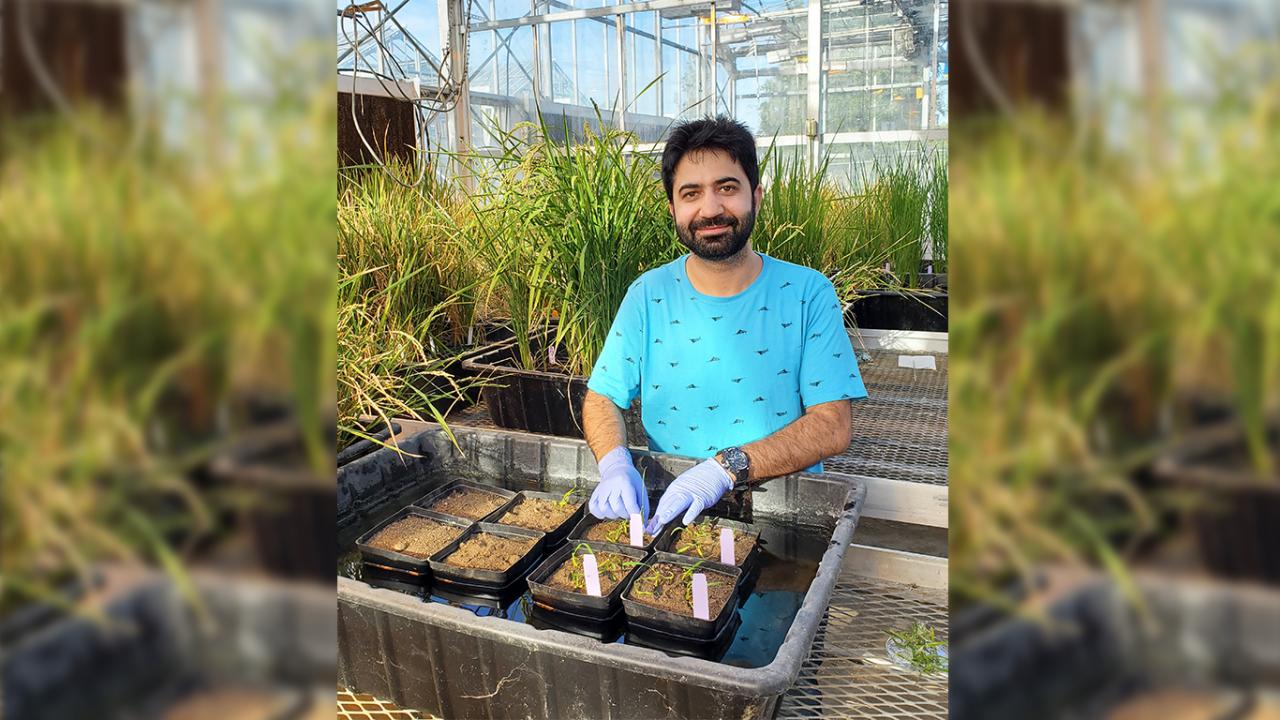
Imtiyaz Khanday joins the Department of Plant Sciences
The Department of Plant Sciences welcomes Imtiyaz Khanday as an assistant professor of plant reproductive biology and as an assistant agronomist for the Agricultural Experiment Station in the College of Agricultural and Environmental Sciences at the University of California, Davis.
“I am delighted to welcome Dr. Khanday to the Department of Plant Sciences, ensuring we remain at the forefront of seed biotechnology research and scholarship,” Gail Taylor said, distinguished professor and chair of the Department of Plant Sciences.
Khanday is an expert in plant development and genetics who received his master’s in biotechnology from the University of Kashmir and a doctoral degree in plant molecular biology and genetics from the Indian Institute of Science in Bangalore, India.
He previously worked as a postdoctoral researcher investigating the role of parental gene expression during zygotic development in the Sundaresan Lab, which is part of the Department of Plant Biology at the University of California, Davis. Venkatesan Sundaresan, who runs the lab, is also a distinguished professor in the Department of Plant Sciences.
Working with Sundaresan, Khanday translated the scientific understanding of zygote development into a method for engineering apomixis, or asexual reproduction through seeds, in rice plants.
“This has been a long-sought goal of seed biotechnology and was called a breeder’s dream or holy grail of agriculture,” Khanday said. “It basically allows the propagation of hybrid crops as clones through seeds, thus preserving the hybrid characteristics or vigor.”
More than a holy grail for researchers, the finding poses serious global significance: it promises to enable propagation of high yielding, disease-resistant, and climate-resistant hybrid crops as clones over many generations at a low cost. Meaning, these highly desirable and productive seeds would be available to farmers across the globe, from the wealthiest to the poorest.
As an assistant professor, Khanday will continue research into this topic to make it a field-ready technology for rice and to extend it to other cereal crops, as well as dicot crops.
Additionally, he will look at cell fate determination during embryo formation in cereal crops, which he explains is not known despite the fact that these crops account for nearly 52 percent of the calories in human diets across the globe every day. Khanday is also excited to be working on a seed vigor assessment program for tomatoes, an effort that will be in collaboration with other researchers in the Plant Sciences department.
Of the assistant professorship in the Department of Plant Sciences, Khanday couldn’t be more thrilled: “I am really excited about this great opportunity to work at UC Davis – it’s the best place in the world for plant and agricultural research. A plant biologist couldn’t ask for a better place to start his lab.”
Seeds for the Future
As part of his role in the Department of Plant Sciences, Khanday will serve as the director of research for the UC Davis Seed Biotechnology Center, or SBC.
The SBC is a world-renowned organization that conducts seed science research and seed breeding projects. It is also one of eight Research and Information Centers hosted by the Department of Plant Sciences, functioning as a focal point for external stakeholders and consumers to interact with the research and educational resources of UC Davis.
“We are thrilled to have Dr. Khanday join the SBC to continue critical research and outreach for the seed industry,” SBC Director Allen Van Deynze said.
Khanday will continue the center’s research in seed science, which was previously led by the center’s founder, Kent Bradford. Bradford, a distinguished professor emeritus in the Department of Plant Sciences, established the center in 1999 and served as its director until 2020.
“It is rewarding that the College of Agricultural and Environmental Sciences and the Department of Plant Sciences have supported the continuation of a seed biologist to direct the research programs of the SBC and that we have been able to recruit such an outstanding candidate as Dr. Imtiyaz Khanday to fill this position after my retirement,” Bradford said. “He brings new skills and vision that will keep UC Davis at the forefront of seed science.”
